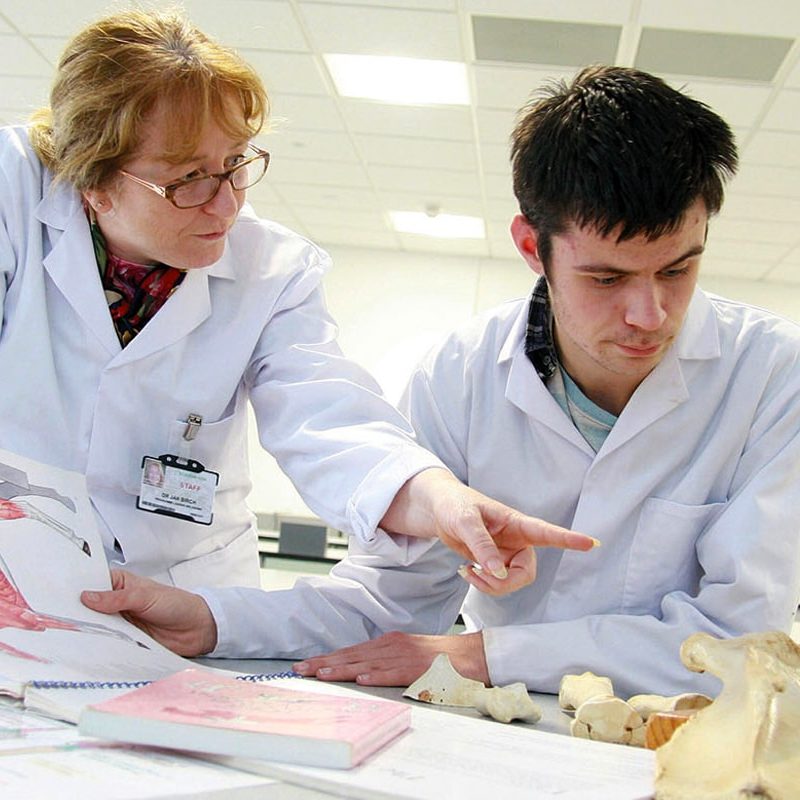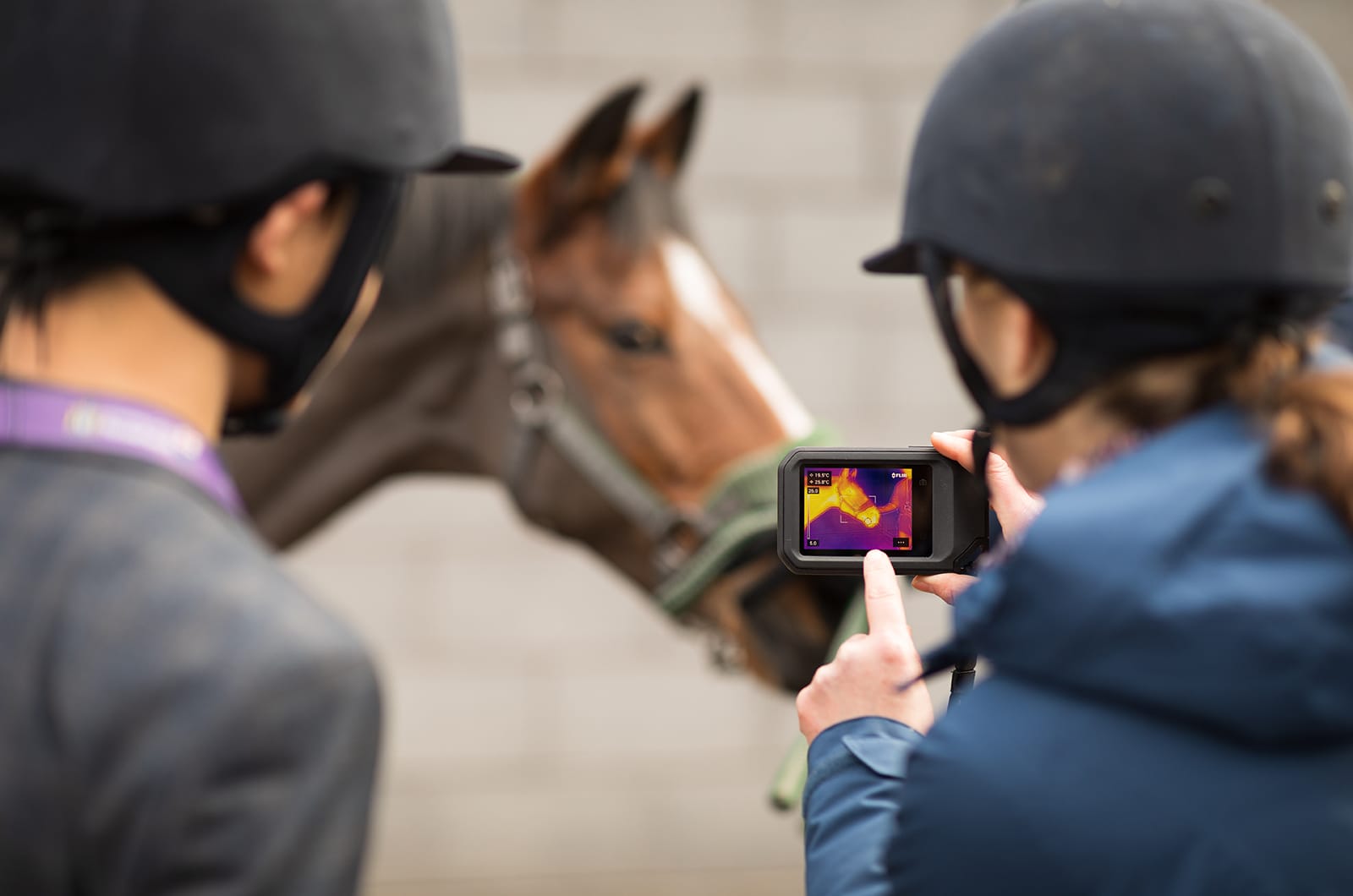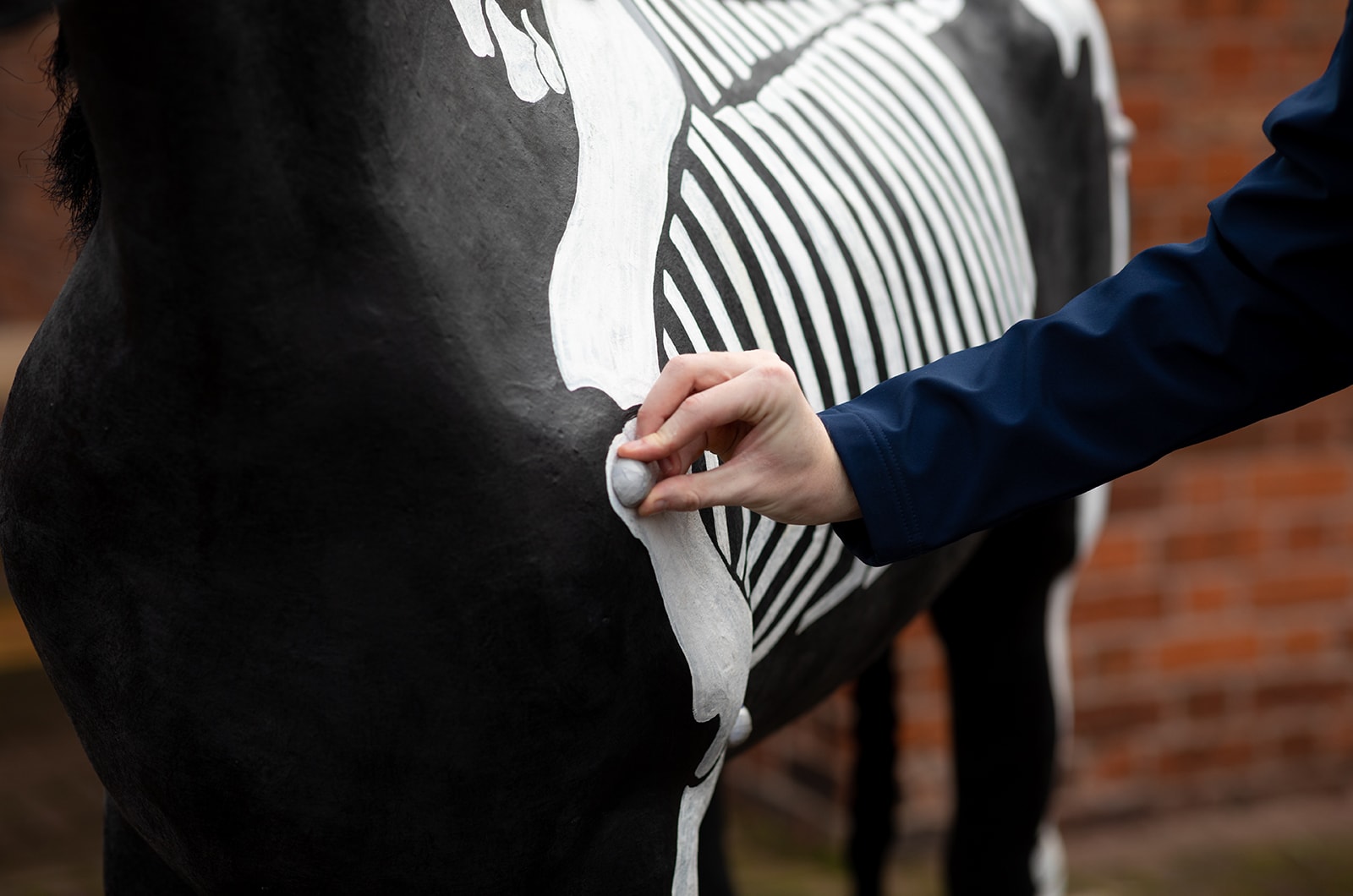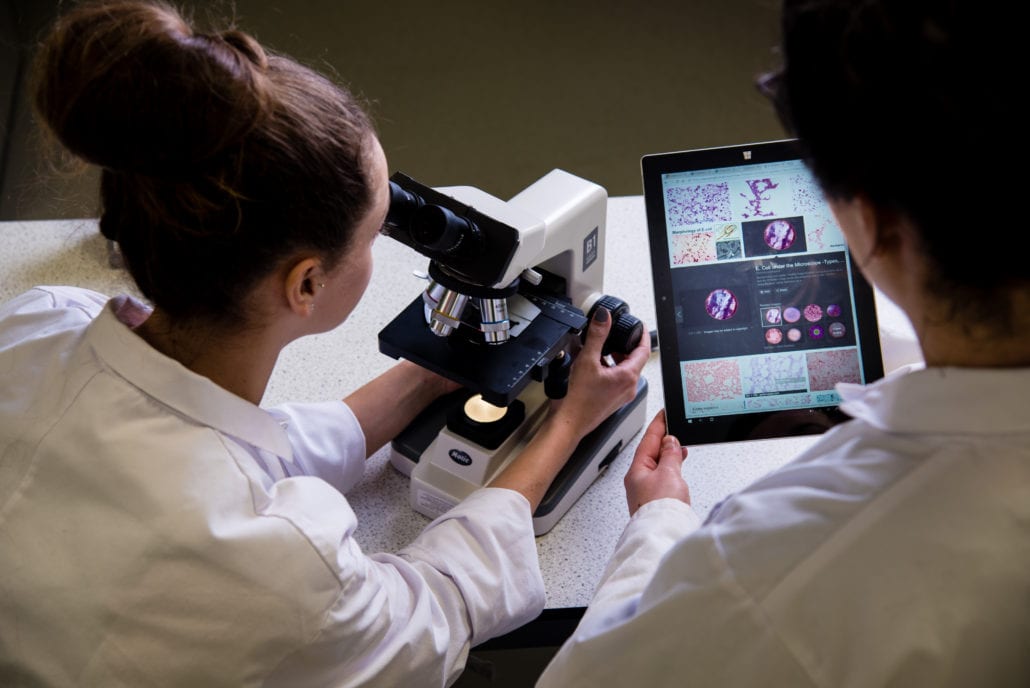Combine your passion for both equine and science with this technical course and explore the science behind the latest advances in the equine industry.
You will study key veterinary science modules from Equine Health and Epidemiology to Veterinary Microbiology and Immunology during this three-year course, while you develop key laboratory skills which will be essential when working in scientific and technical roles within the industry.
In preparation for your rewarding career, you will also gain a good understanding of the scientific principles and management practices associated with maintaining optimal equine health and full athletic performance.


You will develop your ability to identify and solve problems within the sphere of equine science, as well as advancing your interest and understanding of equine related scientific research. This will stand you in good stead to conduct ground-breaking research of your own.


The course focuses on the latest advances in equine science providing graduates with a foundation in the scientific skills essential to the equine industry. The BSc (Hons) in Equine Bioveterinary Science at Reaseheath offers both academic excellence and student satisfaction.
Optional
Optional
Optional modules run subject to sufficient uptake. Module selection will take place during induction week each year and confirmation of a module running will take place at this time.
Overall workload
Your overall workload consists of class contact hours, independent learning and assessment activity, plus field trips. Your actual contact hours may depend on which optional modules you select, but the following information gives an indication of how much time you will need to allocate to different activities at each year of the course:
Year 1:
33% of your time is spent in timetabled teaching and learning activity
Teaching, Learning and Assessment: 400 hours
Independent Study: 800 hours
Year 2:
23% of your time is spent in timetabled teaching and learning activity
Teaching, Learning and Assessment: 277 hours
Placement: 100 hours
Independent Study: 823 hours
Year 3:
16% of your time is spent in timetabled teaching and learning activity
Teaching, Learning and Assessment: 189 hours
Independent Study: 1011 hours
Class sizes vary between 10 and 50 students.
Please note – this information is subject to change
Assessment Methods
Assessments are designed to encourage both academic skills and skills valued in the workplace. They include a combination of coursework and examinations. Coursework may take many forms including: essays, reports, data processing, presentations, academic posters, seminar discussions, interviews, critical reviews, portfolios of evidence and practical competency assessments. The examinations vary, depending on the nature of the module, but may take the form of multiple-choice papers, essays, practical assessments, data handling questions, short answer quizzes, and in class examinations.
The balance of assessment by examination and assessment by coursework depends to some extent on the optional modules you choose. The approximate percentage of the course assessed by coursework is as follows:
Year 1
68% coursework
32% written exams
Year 2
79% coursework
25% written exams
6% practical
Year 3
66% coursework
30% written exams
4% practical
Feedback
Feedback is supplied via Turnitin or directly from the module tutor. The majority of submissions are made via Turnitin and feedback for coursework is provided within twenty working days after the submission date.
Written feedback will be supported verbally should the student require clarification. Formative assessment feedback will be provided at the time of completion where possible, with more detailed summative feedback for reports.
Please note – this information is subject to change.
During induction week, the students are given an Induction Timetable, which is located within a course specific brochure.
Students have the option of completing the level 5 module ‘Work Based Learning for the Land Based Industries’ (or RC5508 Experiential Learning) which includes 150 hours of work experience.
The responsibility of finding a suitable placement lies with the student who is also responsible for any related financial requirements.
Please note – this information is subject to change.
Tuition Fees
As a student at UCR, you will have two main costs to meet; your tuition fees and living costs.
Our full-time tuition fees for UK and EU students, entering University, can be found on our student finance page. These fees are charged for each academic year of a course and are set by the college annually.
Tuition fees for international students can also be found on our student finance page.
Additional Costs
For practical sessions at the equestrian centre, learners are expected to purchase their own uniform (yard wear – as specified by the Equestrian Centre in joining instructions).
As identified previously, students are required to undertake a work placement in a location of their own choosing. The responsibility of finding a suitable placement lies with the student who is also responsible for any related financial requirements.
Students also have the option to undertake a secondary qualification. The training fees for the first qualification are paid for by the college and payment of the examination fee is the responsibility of the student. If students wish to undertake more than one secondary qualification, they may do so but will need to pay the training fees in addition to the examination fee.
Equipment Costs
Student can expect costs to be in the region of £300, to include PPE of an approved riding hat, riding boots, gloves, and a good waterproof coat (without a hood) as well as navy blue jodhpurs and navy-blue polo shirt.
Prices of equipment are subject to change dependent on retailer.
Apply directly through UCAS
A minimum of 96 UCAS points
September 2022
September 2023
Full-time: 3 years
Here you will find useful information about the services and support available at University Centre Reaseheath. Click to expand each item:
University Centre Reaseheath is committed to providing additional financial support to those who need it. To find out about the bursary schemes available visit the additional financial support pages.
For students to get the best out of their time at University Centre Reaseheath, we must both recognise that we owe obligations to each other. These obligations are set out in our UCR Student Contract. Before you accept an offer of a place at University Centre Reaseheath, it is important that you read these contract conditions. If you are going to be living in Halls of Residence, you will also need to read the Student Accommodation Licence Conditions. Both of these contracts can be found here.
Click here to view the University Centre Reaseheath Student Protection Plan.
All UCR students are given the opportunity to apply for residential accommodation. First year students are guaranteed accommodation and this offer is made to all applicants who live more than a reasonable daily travelling distance from Reaseheath (providing you have applied before the UCAS equal considerations deadline. For full details on our halls of residence visit our accommodation page.
We have a team of dedicated professionals on hand to offer you support. These include our Student Services Team, Inclusive Learning Team, Library and Learning Resources Team and the Reaseheath Careers Service. You can find more information on the support provided at Reaseheath on our support page.
University Centre Reaseheath is proud to welcome international students. For more information, please visit our international students page.